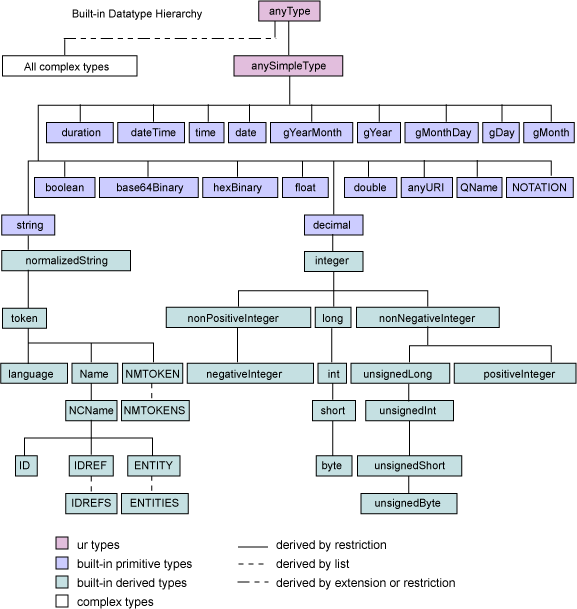There are two main kinds of data types: primitive data types and derived data
types.
Primitive data types
Primitive data types are those that are not defined in terms of other data
types.
Since primitive data types are the basis for all other types, they cannot have
element content or attributes. However, they can contain values and
constraints.
Primitive data types are built into XML schemas.
Examples of primitive data types are string, float, decimal, anyURI, and
QName.
Built-in data types:

The above diagram is from
XML Schema Part 2: Datatypes specification.
Getting access to the primitive data types (in other words, xsd:string) in the schema for
schemas using the XML Schema
model is done by calling the following method where rootSchema is the root
schema that was
created in Exercise 1: Create a root schema document.
XSDSchemaImpl.getSchemaForSchema(rootSchema.getSchemaForSchemaNamespace()).
resolveSimpleTypeDefinition(XSDConstants.SCHEMA_FOR_SCHEMA_URI_2001,"string");
Derived data types
Derived data types are those that are defined in terms of other data
types, which are called base types. Derived types may have attributes, and may
have element or mixed content. Instances of derived types can contain
any well-formed XML that is valid according to their data type definition.
They may be built-in or user-derived. Base types can be primitive types or
derived data types. Derived data types are created using extension and
restriction
facets. They can be built-in or user-derived data types.













